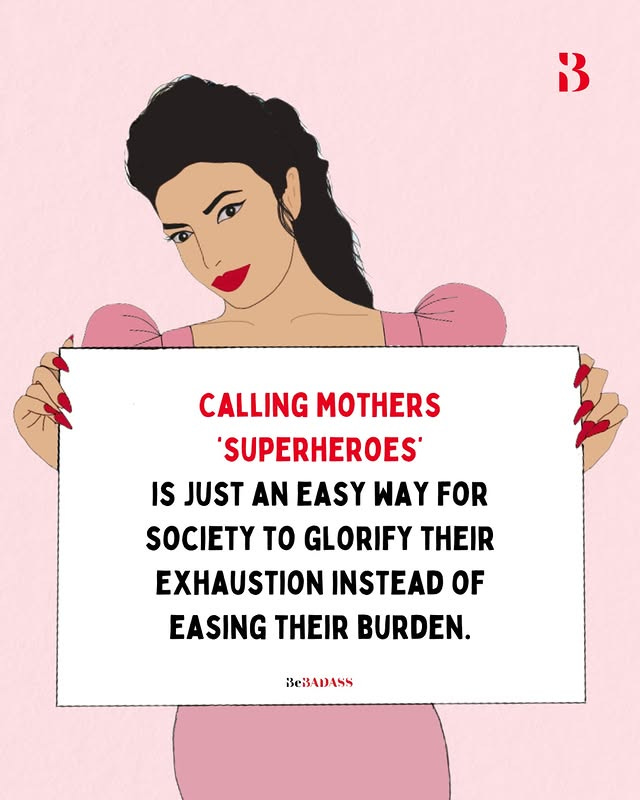
It’s happening.
For over a year now, social media has inundated me with advertisements for birding equipment and perimenopause tips. Here I was, happy to be on the other side of the you’re-not-unlovable-because-you’re-a-damaged-single-mom! “motivational” content and in comes the reminder that I’m getting old(er).
And while yes, I do enjoy my Merlin ID app (hello black-capped chickadees!) and am reading more about hormone shifts in your 40s, I was suddenly hit with the question:
Am I middle-aged?!
Depending on who you ask, middle age is anywhere between 35 and 60, with most settling on 40-50. As with most things, the Internet has wildly different opinions on this subject, particularly as we live longer, so do with that what you will. But as a kid, I was convinced that turning 40 was the beginning of the end.
Best as younger-me could tell, the stereotypical midlife crisis was mostly for men. Overwhelmed by the trappings of married life and fatherhood, they felt compelled to escape, to feel free, to recapture their youth. They bought convertibles and ran off with someone half their age, oftentimes their secretary or a waitress at their favorite diner. They got to be irresponsible but were somehow redeemable in the end, the bumbling fun dad who left mom doing the hard work of parenting.
Women, on the other hand, didn’t have midlife crises, at least not in the same way, although they were still forced to recover from them. Theirs was rooted in healing from heartbreak (by the man described above), acceptable only after they did the work of raising their kids and launching them into adulthood, which either excited or panicked them. There was no in-between.
In other words, men got to have midlife crises, women had midlife crises happen to them.
When I think about these stereotypes now, as a mom and former wife, what I see in them are parents in the thick of it. They’re working, the kids are in school and probably have extracurricular activities. The dads choose to work long hours, leaving mom to handle literally everything else, whether or not she’s also working outside of the home. They’re tired, probably stressed about paying the bills or figuring out the perfect family vacation.
In the storied stereotypes, dad feels “neglected” and falls for a younger woman he sees regularly, mistaking proximity for passion. He’s oblivious to the fact that his feelings of neglect are largely self-imposed, that if he simply pitched in at home more, if he shared the mental load, there’d be more time and space for him.
Meanwhile mom, who has already been carrying the full weight of taking care of the family, is left to almost exclusively pick up the pieces for their kids, the neglect she felt irrelevant, her desires secondary, the duty of care work hers alone.
This is gross generalization, of course, but you get the idea.
These days, this midlife narrative has been largely relegated to jokes or as an excuse for poor behavior. Not quite accepted as the norm but not not accepted as a concept. Yet despite the very flawed version of the midlife crisis we were sold, it was perhaps not totally off base, the gendered expectations still a problem, the desire for freedom and escape palpable.
Only now, women are the ones taking action to free themselves and they are increasingly unafraid to talk about it.
As I come up on 43 and look in the mirror, I can see the crows feet, the beginnings of saggy skin if I’m not properly moisturized, the slight droop of an eyelid. The gray hairs are sprouting and my hormones, while not going off the rails quite yet, are definitely sending little signal flares that I’d better be on the lookout.
I know that chronologically I am in midlife, but I feel like I’m just getting started. I’m in the beginning of my second act, where I finally get to reap the benefits of all that I’ve been through. Big changes and hard things will still come my way, of course, but generally speaking, I have a handle on things. I like my life and more importantly, I like myself.
I haven’t had the midlife crisis that the movies told me I was owed. No one ran off with a much younger woman and a sports car never appeared. But I have had my midlife reckoning, one in which I left my marriage, shifted careers, and became a single mom in the span of 2 years.
It was liberating.
If this all seems quick, it was, but it also wasn’t, as it stemmed from a deeply held recognition that what I wanted and what I was doing were not in alignment.
So while I’m not so sure I believe in the concept of midlife crises, I do believe in midlife liberations.
I call it a liberation because for the first time probably ever, I was able to set down the expectations of others and of myself. Instead of keeping my head down and going through the motions, I started to truly take stock of my life - my desires, thoughts, and goals - and methodically decided which would stay and which would go.
Midlife crises are messy and abrupt, but my midlife liberation was a carefully planned exit strategy from the life I was living and into a new and improved version of it.
So when I think about that dad in the movies who runs off with someone half his age, I think the audacity! And when I think about the mom who sunk into a funk, I think obviously!
And then I think, it’s really not that different now.
Women still take on the majority, if not all, of the mental load for caring for their families. They do it while also working full-time, and they oftentimes do it while spending more time with their kids than moms did 50 years ago. They’re expected to do it all, to do it well, and to do it with a smile (and don’t even get me started on the “supermom” mentality).
Meanwhile, not much has changed in terms of the expectations for dads, other than spending a little more time with their kids and to promise to pitch in somewhat/maybe equally at home, whether or not they follow through on it.
The bare minimum is aspirational, leaving us clamoring for something that should be a given.
So it’s no surprise that many moms who are doing it all - working full-time, serving as the default parent, carrying the vast majority of the mental load - are uprooting their lives for something better when they are able to, whether with or without their partners.
Life is hard enough with *waves hand at literally everything from student loans to childcare to soaring housing costs to attacks on reproductive rights to the price of berries* without also continuing to bear the brunt of the traditionally inequitable family and marital structures that make life even harder.
Which is all a very long-winded way of sharing that while I’m not sold on the midlife crisis, I am all in on a midlife liberation.
May yours be beautiful.
Relevant Reading
Speaking of bumbling fun dads and moms doing the hard work of parenting, I recommend checking out “Watching Mrs. Doubtfire During the Fall of Democracy” from
.- ’s "Desire disorders" are the new hysteria” is the third essay in her series exploring low libido, which is oftentimes chalked up to a medical issue rather than looking at the social and political conditions that contribute to women’s desire.
Pretty much anything from
, but “Is menopause making women go crazy and leave their partners?” is a good one for the intersection of divorce and midlife.
Thank you for reading Delightfully Difficult, a newsletter aimed at shaking up the status quo in motherhood, midlife, and everything in-between.
If you liked this post and find my work valuable, please consider subscribing, upgrading to paid, or sharing so that others can make their way here.
A version of this essay was first published on July 9, 2024.





